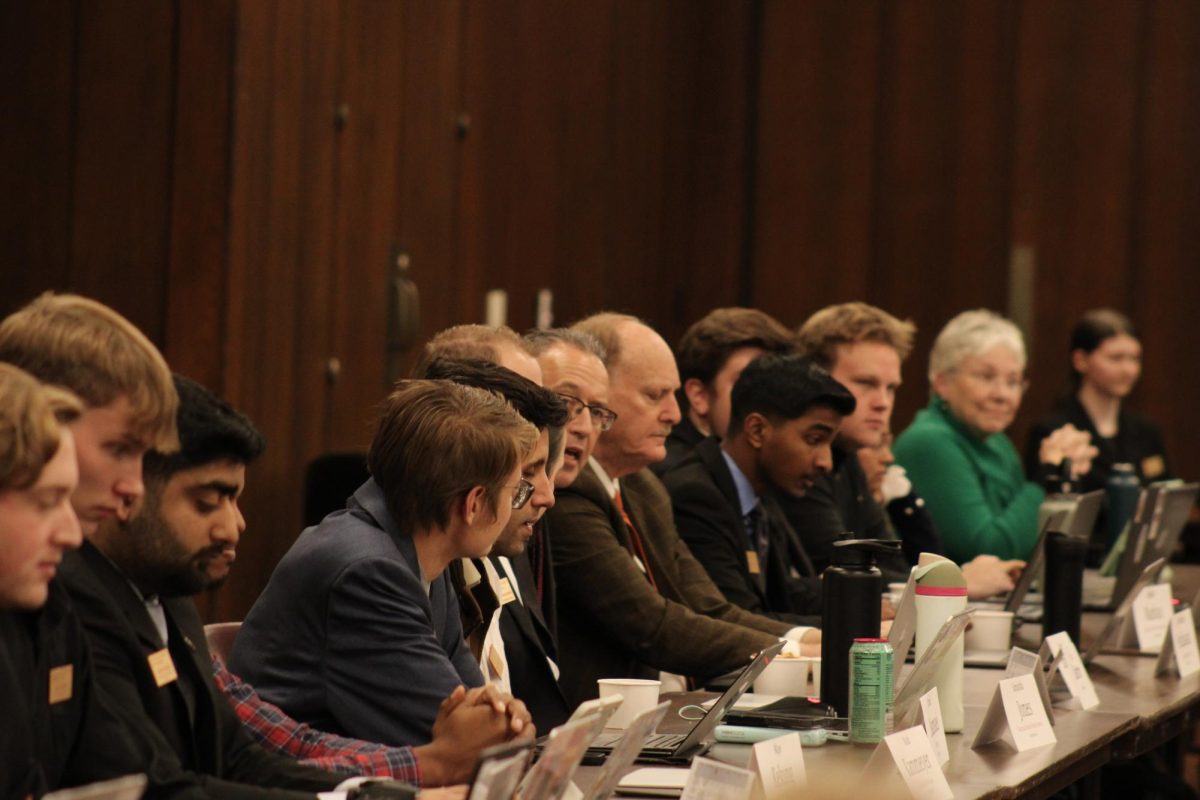Letter to the editor: He is who he is and that’s all that he is
December 6, 2000
In the Dec. 6 Daily, Dan Skinner said, “If God decreed tomorrow that rape was permissible, would you do it? After all, it would be morally acceptable. Certainly not, and therefore your Divine Command stance is flawed. God or not, intrinsic wrongs exist.”
Any student of philosophy knows about the Divine Command Theory. Simply put, it asks, “Does God command things because they are good, or are things good because God commands them?”
If God commands things because they are good, one could argue that God must have some standard outside of himself telling him that those things are good. Hence, God is not really God, but just an intermediary between us and some higher being.
But if things are good simply because God commands them, then, as Dan points out, God is arbitrary. In this situation, God could easily command rape to be a good action tomorrow.
As a Christian, I could possibly accept the first possibility of the Divine Command Theory, but, personally, I accept neither. I believe that this theory is a false dilemma. When God commands things as good, he commands them because those things are in according with his character. God cannot command something that goes against who he is.
Similarly, a father who was staunchly opposed to drinking would not tell his son (no matter how old) to get drunk because it would violate the father’s character. So could God change his command about rape? No. Further, in scripture, I don’t think this is better evidenced than when, in Exodus 3:14, “God said to Moses, ‘I AM WHO I AM.'”
God’s nature (as well as his existence) just is. There is nothing outside of God disclosing morality to him. He is who he is. Following that logic, God issues commands in line with who he is.
Moreover, Dan wrote, “intrinsic wrongs exist.” As a serious question, do intrinsic wrongs exist in people simply because they exist, or do they exist because “God created man in his own image?” (Genesis 1:27)
Some may say that whatever maximizes total happiness and minimizes total pain is good. But how do you quantify each person’s total happiness or pain? Can you accurately assess their changing pleasure/pain levels minute to minute? That seems quite impossible.
Further, is it possible to consistently live out this doctrine of utilitarianism? What if my friends and I think it is a good idea to kill you (the utilitarian)? The pleasure we would collectively gain from killing you would be greater than the pain that you and your family would suffer (assuming this pain/happiness level can be quantified).
So our murder would be justified under a utilitarian moral code. Does anyone actually believe that? No.
God made us in a moral framework. God expects us to be moral because he made us that way. And he commands that morality because he, himself, is the standard of morality. “No one is good except God alone.” (Mark 9:18)
Andy Merrick
Junior
Management Information Systems






